When exploring long-term care options for a loved one, you’ll likely encounter two popular choices: assisted living and nursing homes. While these terms are often used interchangeably, assisted living is not a nursing home; they are distinct care options designed to meet different needs.
Assisted living is meant for seniors who may require help with daily living activities but promote independence and social programs. Nursing homes provide long-term, 24-hour medical care for those with complex medical needs. Making the right decision for your loved one requires understanding the essentials of assisted living and nursing homes, including who they’re designed for and their benefits and drawbacks.
Key Takeaways
- Assisted living is ideal for seniors who value independence but need help with daily activities such as cooking, cleaning, or medication management. These communities often provide a social, home-like atmosphere with added support.
- Nursing homes are best suited for individuals with chronic illnesses or significant medical needs that require round-the-clock care and access to skilled nursing professionals.
- Choosing the right option involves evaluating the individual’s needs, preferences, health conditions, financial considerations, and proximity to family members.
- To make an informed and confident decision, it is essential to tour facilities, ask questions, and review all available resources.
What Is Assisted Living?
Assisted living is a residential care option that supports individuals who need help with daily activities but still value their independence. It’s an excellent solution for seniors who want to balance autonomy and support in a social, structured environment.
Who Is Assisted Living Right For?
Assisted living is ideal for seniors who:
- Need help with daily tasks like bathing, dressing, or medication management.
- Want to maintain an active social life with peers.
- Prefer a less clinical environment than a nursing home.
- Do not require round-the-clock medical supervision.
Typical residents of assisted living communities are older adults who are primarily self-sufficient but benefit from some assistance and extra security.
Pros & Cons of Assisted Living
Pros
- Independence: Residents enjoy privacy and freedom in their apartments or rooms while receiving necessary support.
- Social opportunities: Many communities offer group activities, communal dining, and events to foster community.
- Personalized assistance: Services are tailored to each resident’s needs, ensuring they receive the right amount of help.
- Amenities: Communities often include fitness centers, gardens, libraries, and transportation for outings or appointments.
Cons
- Cost: Assisted living can be expensive, varying widely depending on location and services.
- Limited medical care: These communities aren’t designed for individuals with complex medical needs requiring 24/7 attention.
- Adjustment period: Moving to assisted living can be an emotional transition for some seniors leaving their long-time homes.
What Is a Nursing Home?
Nursing homes, also known as skilled nursing communities, provide higher care for individuals with significant medical needs or mobility challenges. These communities blend long-term care with round-the-clock medical oversight.
Who Are Nursing Homes For?
Nursing homes are best suited for individuals who:
- Require full-time medical care or supervision due to chronic health conditions, disabilities, or recovery from surgery.
- Are bedridden or need extensive assistance with mobility and daily activities.
- May have cognitive impairments, such as advanced dementia or Alzheimer’s, requiring specialized care.
- Residents in nursing homes often have complex care needs that can’t be met with minimal assistance.
Pros & Cons of Nursing Homes
Pros
- Comprehensive medical support: Nursing homes have trained medical professionals on-site, including registered nurses and doctors.
- Specialized services: communities often offer physical, occupational, and other rehab services.
- Security: Around-the-clock care ensures residents are safe and well-monitored.
- Medication management: Staff handle all aspects of medication administration to ensure accuracy and adherence.
Cons
- Institutional feel: The clinical environment may feel less personalized or homely for some residents.
- Cost: Nursing homes are one of the more expensive care options due to the high level of medical care provided.
- Limited freedom: Residents typically have fewer personal freedoms and less independence than those in assisted living.
How Do I Choose the Best Option for My Loved One?
Navigating this decision can feel overwhelming, but keeping your loved one’s needs and preferences in mind will help simplify the process.
- Assess needs: Does your loved one require round-the-clock medical care? If so, a nursing home may be the best fit. If they are relatively independent but need occasional assistance, consider assisted living.
- Visit communities: Schedule tours to assisted living communities and nursing homes. Pay attention to cleanliness, staff interactions, and the overall atmosphere.
- Research costs and financial assistance: Compare costs and research any available financial resources, such as long-term care insurance, Medicare, or Medicaid, to assist with funding.
- Consider emotional well-being: Consider your loved one’s emotional comfort. Would they thrive in a more independent, social setting or feel more secure with constant medical care?
- Include your loved one in the decision: Where possible, involve your loved one in decision-making. Their input can provide insights into their preferences and ensure a smoother transition.
Helping Your Family Take the Next Step
While the decision can feel challenging, knowing the differences and matching your loved one’s needs with the right type of care ensures that they live their golden years with dignity and peace.At The Gardens of Carleton, we aim to provide your loved one with a safe, comfortable, and supportive environment. Contact us today to schedule a tour and see if our community is right for your loved one.






